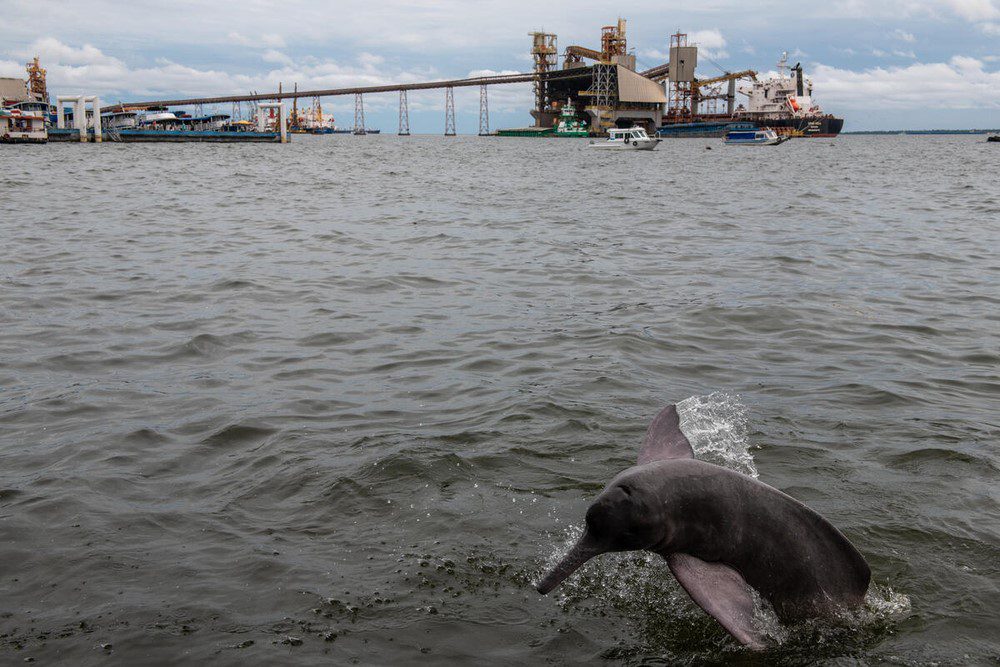The World Wildlife Fund (WWF) has released its Living Planet Report for 2022, urging that the escalating loss of the natural world is pushing life on Earth towards “catastrophic consequences”. Preserving nature is pivotal in humans’ ability to meet global net zero goals, and yet in the last 50 years, wildlife populations have seen an average decline of 69 percent.
The findings of the report are clear: without urgent action on the part of world leaders to step up on promises made for the environment, we will soon reach a point of no return in the climate crisis. Much of the planet’s capacity to heal rests on the survival of crucial, climate-sustaining environments such as the Amazon rainforest. Despite this, human practices have led to wildlife populations in Latin America and the Caribbean dropping 94 percent on average within a lifetime. Freshwater species populations have dropped 83 percent on average since 1970.
Not only have governments failed to reverse these trends but instead, we find ourselves accelerating toward them. The 2022 report is the most comprehensive in its 24-year history, having obtained more data and carried out rigorous analyses to interpret the results than any that have come before it. Featuring 32,000 populations of 5,320 species, its findings reflect what scientists have long been saying: without urgent action for our planet, it will soon be too late to preserve life on Earth as we know it.
We spoke to Executive Director for Science & Conservation at WWF-UK Mike Barrett to find out more about what the WWF Living Planet Report 2022 means for Earth’s citizens and how we as a global population can step up at this pivotal moment in our species’ history.

Image courtesy of WWF/Mike Barrett
What conversations do you hope the WWF Living Planet Report 2022 will trigger?
The main conversations that I would like to see happen are around urgency, and the fact that we have to act now. It’s been too easy in the past to understand that nature is in decline, but feel that action is for somebody else to take on further down the line. The key thing that we want to get across now is the understanding that there actually are tipping points. There are points beyond which there are irreversible global consequences. It’s also about knowing how close we now are [to those tipping points]. That’s both in a kind of physical sense in what could happen in the Amazon, but also in a political sense.
The [COP15] meeting in Montreal this year is the last chance for the international community to act. I think that’s what we really want to get across from this. The picture of decline across the globe is absolutely clear, there’s no dispute about that. We understand the urgency of action. It really has to be [considered] a “now or never” moment.
Where does the responsibility for this fall?
It isn’t reasonable to expect consumers alone to try to make all the right decisions that are going to help solve this problem. We can’t do that and it’s not reasonable to expect that. What we’re saying is that there needs to be a campaign to hold our leaders to account for promises that have been made.
[In the UK], if you go to the WWF website, there is now information and guidance on our campaign to hold the government to account for promises that have been made. Now, people have got to stand up, make their voices heard, contact their MPs and demand what we have been promised, which was that the government was going to halt the loss of biodiversity. We have got to hold them accountable. And if this government doesn’t do it, it will be too late. They can’t pass it on to future governments.

Since the 1970s, the Tapajós River has witnessed an explosion in mining, logging, and illegal land grabs across Indigenous, traditional and public land – and the pressures have increased significantly since Brazilian President Jair Bolsonaro took power in 2019, combined with the COVID crisis and a surge in gold prices. Image credit: © Chris J Ratcliffe / WWF-UK
What would you say to the world leaders whose actions don’t reflect the severity of the situation we’re in?
That a failure to act, a failure to set out a plan with sufficient ambition this year, will be a betrayal of people all over the world, and a betrayal of future generations. It would simply be unacceptable. This can’t be about throwing a few more quid at the problem and thinking that conservation agreements can solve the loss of nature. We can help, we can play a role, but actually, the change has got to be far more systemic. It’s got to be about the way we produce and consume, about the way that we trade with each other. If we don’t act on that kind of revenue, we won’t see the changes we need.
And what kind of changes will we see if governments fail to fulfill their promises?
Well, we know now that we are perilously close to reaching a tipping point in the Amazon. We know that deforestation in the Amazon is accelerating, and we’re moving towards the point where that becomes irreversible. The thinning of vegetation in the Amazon causes the recycling of moisture to essentially switch off. If that happens, then what is currently the world’s largest tropical rainforest will convert to being a sort of dry, Savanna-like landscape. If that happens, we know that it will not be possible to avoid dangerous global climate change.
We need to be thinking about what that means to us. Even here in the UK, we’re a long way from the Amazon but what we consume and import drives that deforestation. And we know what the results are. We saw 43°C temperatures, and we’ve seen extreme flooding events over the past few years. That’s going to become our new norm. If we lose the Amazon, that is our new normal.
For more information on the findings from the 2022 Living Planet Report, visit the WWF website.
Source Link: Global Wildlife Populations Have Plummeted By 69 Percent On Average Since 1970, WWF Reveals